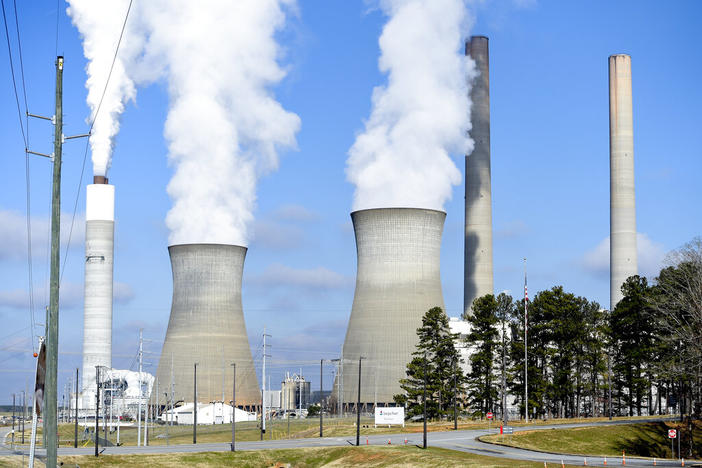Georgia Power Co. bills could go up another 17% in June to cover the higher costs of natural gas and coal that the utility is burning to generate electricity for its 2.7 million customers.
The unit of Atlanta-based Southern Co. told regulators Tuesday that it needs to collect billions more going forward, and that ratepayers will likely owe the company an additional $2.6 billion for fuel it has already bought by June.
That means a typical Georgia Power Co. residential customer could pay as much as $23 a month more on their bills over the next two years to cover the costs, if the Georgia Public Service Commission approves. The company says falling natural gas costs could bring that amount down to $17 a month.
“Just as Georgians paid higher prices at the gas pump in 2022, Georgia Power also paid more for the natural gas — on average three times more — and other fuels we used to generate electricity,” company spokesperson Jacob Hawkins said in a statement. “These increases are solely a result of rising energy prices — and Georgia Power earns zero profit from these fuel costs.”
That will be atop rate increases already coming. Rates went up 2.5% last month, bringing a typical residential bill to $131.60 a month, after the Public Service Commission approved a three-year rate plan in December. Increases of 4.5% will follow in 2024 and 2025.
Customers will also have to pay the costs of the third and fourth nuclear units at Plant Vogtle near Augusta. Unit 3 is projected to begin operation in May or June, leading to a roughly $4 a month increase for residential customers. A larger rate increase is likely to follow when Unit 4 begins operations, now projected before March 2024.
Public Service Commission staff have warned that all the changes could increase residential bills by $55 to $60 month.
Typically, a utility is allowed to charge customers for the cost of fuel, but isn’t allowed to make a profit on those charges, unlike the profits Georgia Power is guaranteed for investing in power plants and transmission lines. The five-member elected commission typically decides how much Georgia Power can collect to pay for fuel once every two years. In the meantime, if prices change, the company can collect too much or too little.
During this two-year period, even though the commission approved a 15% boost in fuel costs that began in January 2022, the company collected far too little money, as natural gas prices skyrocketed because of an improving economy and the Ukraine war, and coal prices rose even more steeply in part because of supply and labor shortages. Georgia Power says the price of gas tripled from 2020 to 2022, and the price of coal ended up five times higher.
Liz Coyle, the executive director of Georgia Watch, a nonprofit that advocates for consumers, acknowledged that the high unrecovered fuel balance is “highly, highly unusual,” but said commissioners need to delay rate increases for Vogtle to give ratepayers some relief.
“Any way you look at it, people are struggling to pay their power bills, and the rate increase and unit 3 and 4 are bad,” Coyle said.
Georgia Power says it wants to make up the under-collected amount over three years, instead of the typical two, because the debt is so large. The utility says spreading $900 million in collections into the third year would cut the boost in bills by about $7 a month.
The company says that natural gas prices have been falling since it made its projections of the cost in September, and the cost to a residential customer could be closer to $17 a month. Georgia Power said it would file updated projections later.
Georgia Power also wants the commission to give it the ability to make larger changes to cover cost swings between fuel-cost rate cases, asking for permission to raise or lower fuel charges by as much as 40% in the interim, instead of the current 15%. Because of unrecovered debt, that ability would likely only be used to further raise customer bills in the next two years.
The company also proposes to raise a fuel cost discount for low-income senior citizens from $6 a month now to $8 a month.

